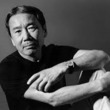When we were orphans
Description
More Details
9780060854317
9780375410543
9780375412653
Also in this Series
Published Reviews
Booklist Review
Ishiguro follows the graceful and well-received novels Remains of the Day (1989) and The Unconsoled (1995) with a limpidly written, subtly complex novel set in two very different parts of the world in the 1930s. As the story opens, Englishman Christopher Banks is fulfilling his life's ambition to become a private detective. Christopher was born in Shanghai, China, and when his parents disappeared early in his boyhood, he went to live in England even as the best detectives in Shanghai continued trying to find his mother and father. Once in England, Christopher's pursuit of his goal to become a detective has a certain inevitability about it, as does his eventual return to Shanghai to try his own hand at discovering the whereabouts of his parents. The China he returns to is in the midst of civil conflict between the adherents of the Nationalist Party and the followers of the Communist Party and is also contending with the invasion of the Japanese army. Christopher reconnects with his best friend Akira, but more importantly, he also discovers the truth about what happened to his parents--specifically, the startling knowledge about the source of his financial support during his years in England. This is a compelling novel that artfully depicts certain specific political and cultural clashes as a backdrop to exploring the conflict inherent in any individual's pursuit of freedom and identity. Serious fiction readers will both enjoy and admire Ishiguro's subtle work. --Brad Hooper
Publisher's Weekly Review
Set in Shanghai on the eve of World War II, Ishiguro's Booker-nominated novel follows the surreal predicament of Christopher Banks, an English expatriate whose overwrought state is perfectly rendered by narrator John Lee. After his parents are mysteriously kidnapped, nine-year-old Christopher is shipped off to England, where he grows up to become the Sherlock Holmes of his timesÄa man able to right wrongs, restore order. After 18 years, Banks returns to Shanghai with the bizarre notion that if he can find his parents, he can prevent the world war. Banks's search drags him through the era's Chinese-Japanese war in a masterful sequence where past and present, reality and imagination, good and evil become indistinguishable. Lee seamlessly renders Banks's complex psychology, but he employs an exaggerated nasal voice for the characters of several pompous Brits, and his Chinese and Japanese accents are often off-putting. But listeners probably won't let these small blemishes keep them from Ishiguro's much-acclaimed tale of abandonment, nostalgia and self-delusion. Based on the Knopf hardcover (Forecasts, July 10). (Sept.) (c) Copyright PWxyz, LLC. All rights reserved
Library Journal Review
Atmosphere, historical detail, suspense: Ishiguro's new book has it all, and if the parts finally don't add up, the author should still be credited with providing another great read. He should also be credited with originality, for though he investigates the polarities of insider-outsider, English-foreign, as he has done before (e.g., The Remains of the Day, The Unconsoled), he is hardly writing the same book again and again. Here, Christopher Banks is an Englishman born in early 20th-century Shanghai whose parents disappear mysteriously when he is nine. He is escorted to England, grows up to be a famed detective, and returns to Shanghai, convinced that his parents are still alive and that he must find them. The reader is less convinced that Banks is a real detective and wonder how he can entertain the romantic notion that his parents have been held hostage in Shanghai for decades, but the truth behind their disappearance comes as a satisfying surprise. And the writing is just wonderful, at once rich and taut. More writers should take style lessons from Ishiguro. For most collections. [Previewed in Prepub Alert, LJ 5/1/00.]DBarbara Hoffert, "Library Journal" (c) Copyright 2010. Library Journals LLC, a wholly owned subsidiary of Media Source, Inc. No redistribution permitted.
Kirkus Book Review
An eerie, oddly beautiful tale from the internationally acclaimed author revolves around an enigmatic ordeal essentially similar to that undergone in Ishiguro's The Unconsoled (1995). This narrator, Christopher Banks, is a prominent English detective whose ratiocinative skills are severely tested by mysteries lodged in his own haunted past. Born in Shanghai, where his father was employed in the early 1900s by a powerful global trading company, Christopher spent most of his first decade sheltered in that otherwise turbulent city's secure International Settlement, only dimly aware of his mother's outspoken criticism of the ruinous opium trade (in which her husband's employer was heavily invested): a courageous stance that presumably led to the separate "disappearances" of both Banks parents, and their son's return to live with relatives in England. Twenty-some years later (in 1937), the eminent detective, now the beneficiary of a family legacy and the adoptive father of an(other) orphan, returns to Shanghai determined to rediscover the personal history taken from him long ago. But China is now imperiled by an increasingly violent Japanese military presence; old acquaintances assume inexplicably "foreign" shapes; every step taken toward recapturing his past confirms the indigenous axiom that "our childhood becomes like a foreign land once we have grown." The disturbing climax, set in an unsettled urban hell far from the placid environs of the International Settlement, leads to a bitterly ironic revelation of what was sacrificed in order that Christopher Banks might live, and the chastened realization that he is one of those (unconsoled?) "whose fate is to face the world as orphans, chasing through long years the shadows of vanished parents." Elegiac, meditative, ultimately emotionally devastating, and the purest expression yet of the author's obsessive theme: the buried life unearthed by its contingent interconnection with the passions, secrets, and priorities of unignorable other lives. Copyright ©Kirkus Reviews, used with permission.
Booklist Reviews
Ishiguro follows the graceful and well-received novels Remains of the Day (1989) and The Unconsoled (1995) with a limpidly written, subtly complex novel set in two very different parts of the world in the 1930s. As the story opens, Englishman Christopher Banks is fulfilling his life's ambition to become a private detective. Christopher was born in Shanghai, China, and when his parents disappeared early in his boyhood, he went to live in England even as the best detectives in Shanghai continued trying to find his mother and father. Once in England, Christopher's pursuit of his goal to become a detective has a certain inevitability about it, as does his eventual return to Shanghai to try his own hand at discovering the whereabouts of his parents. The China he returns to is in the midst of civil conflict between the adherents of the Nationalist Party and the followers of the Communist Party and is also contending with the invasion of the Japanese army. Christopher reconnects with his best friend Akira, but more importantly, he also discovers the truth about what happened to his parents--specifically, the startling knowledge about the source of his financial support during his years in England. This is a compelling novel that artfully depicts certain specific political and cultural clashes as a backdrop to exploring the conflict inherent in any individual's pursuit of freedom and identity. Serious fiction readers will both enjoy and admire Ishiguro's subtle work. ((Reviewed July 2000)) Copyright 2000 Booklist Reviews
Library Journal Reviews
Atmosphere, historical detail, suspense: Ishiguro's new book has it all, and if the parts finally don't add up, the author should still be credited with providing another great read. He should also be credited with originality, for though he investigates the polarities of insider-outsider, English-foreign, as he has done before (e.g., The Remains of the Day, The Unconsoled), he is hardly writing the same book again and again. Here, Christopher Banks is an Englishman born in early 20th-century Shanghai whose parents disappear mysteriously when he is nine. He is escorted to England, grows up to be a famed detective, and returns to Shanghai, convinced that his parents are still alive and that he must find them. The reader is less convinced that Banks is a real detective and wonder how he can entertain the romantic notion that his parents have been held hostage in Shanghai for decades, but the truth behind their disappearance comes as a satisfying surprise. And the writing is just wonderful, at once rich and taut. More writers should take style lessons from Ishiguro. For most collections. [Previewed in Prepub Alert, LJ 5/1/00.] Barbara Hoffert, "Library Journal" Copyright 2000 Cahners Business Information.
Publishers Weekly Reviews
Despite some contrived events and a tendency to rework the characterizations and themes of his previous books, Ishiguro's latest novel triumphs with the seductiveness of his prose and his ability to invigorate shadowy events with sinister implications. Like all of Ishiguro's protagonists, the narrator, here a recent Cambridge graduate named Christopher Banks, is an emotionally detached man who hides his real feelings from himself and who passively endures being trapped in nightmarish settings that give him "a grave foreboding." Like the hero of The Unconsoled, Christopher is bewildered by "the assumption shared by everyone... that it was somehow my sole responsibility to resolve the crisis." The crisis here is nothing less than averting WWII, which shares priority in Christopher's mind with the disappearance of his parents in Shanghai in the early 1900s, when he was nine years old. Christopher is sent to school in England, where he first formulates his dream of becoming a famous detective, an objective he achieves at a young age. Though he is convinced that his parents are still alive and that he can find them, he doesn't return to Shanghai until 1937, when he is in his mid 30s. It's obvious to the reader that Christopher deludes himself about many things, such as his conviction that when he "roots out evil," he is "cleansing the world of wickedness." This inclination toward grandiosity is a direct result of Christopher's sense of powerlessness as an orphan. While he is unaware of the connection, he is drawn to mercurial Sarah Hemmings, also orphaned in childhood. Ishiguro again conjures time and place with precise detail, evoking both the exotic atmosphere of prewar Shanghai, festering with the contrast between the arrogant residents of the International Settlement and the Chinese living in squalid slums and supplied with opium by foreign merchants, and class-conscious England, in which one's "connections" depend on family lineage. While the novel is mainly an introspective account of the protagonist's emotional dislocation, Ishiguro shows a new mastery of narrative tension, notably with Christopher's Kafkaesque experience during the Japanese invasion. In the end, Christopher understands that his vision of reality was distorted, and that his lifelong mission, "chasing through long years the shadows of vanished parents," was the inescapable fate of one caught in the toils of historical turbulence. 75,000 first printing. (Sept.) Copyright 2000 Cahners Business Information.


































